5 Greatest Inventors Who Didn't Make Money From Their Inventions
What is the easiest way to make money? The answer is pretty simple; have an idea or invention! These are the surest route to financial freedom and fame. There are many billionaires today who made their money from their inventions. The likes of Alfred Noble, Henry Ford, Bill Gate, @nerd, etc.
However there are others who made little or nothing at all from their inventions. This may be as a result of some factors. Now lets see some of these people who got nothing from their inventions.
- Jonas Salk
Until 1955, when the Salk vaccine was introduced, polio was considered one of the most dreadful public health problems in the world. When Jonas Salk came up with the vaccine to eradicate polio and after the vacine's success was made public on April 12, 1955, Salk's name got popularized. He was hailed as a 'miracle worker', countries arround the world almost observed that day to be a public holiday. There was an urgent rush for vaccination afterwards. Countries like Canada, Sweden, Denmark, Norway, Netherlands, Switzerland, and Belgium begun plans to kick-start polio immunization campaigns using Salk's vaccine. In the midst of all these, newsman Edward R Murrow asked him who the patent belonged to. ''The people, I would say. There is no patent. Could you patent the sun?'' he replied.
There is a public belief that Salk refused the patent because he wanted the global health crisis of polio to be stopped. However the Salk Institute had investigated that posibility and concluded that a 'Patent Application' would likely be denied due to the ''Prior Art'' law.
Whatever the reason, the fact that such a ugly disease has been reasonaly swept from the earth is a testament to how an invention can change the world without making its creators a ton of money.
- Daisuke Inoue
It's hard to think of a cultural phenomenon that has had the reach or staying power of karaoke. Harder to imagine infact is that there was once a time when karaoke didn't even exist. Now someone actually invented this phenomenon but didn't even get to earn a dim from it!
It's painful to hear that Daisuke Inoue -- popularly called the Karaoke guy-- is that man who came up with the concept and built the first karaoke machines. He is a musician in his youth whose talent was to back up musicians who sing in bars. Inoue invented the machine to allow the musicians sing without live back-up. He didn't patent the machine and so didn't profit from it.
Daisuke Inoue didn't think he had made an invention worth patenting. He had been struggling as a night club musician in Kobe until 1969 when one business leader asked Inoue to accompany him to a weekend retreat so he could sing there. He saw the opportunity in following the business mogul and quickly made an eight-track cassette tape of the CEO's favorite tune:
a little ditty about a Tokyo airport from singer Frank Nagai, titled "Leaving Haneda 7:50."
The CEO was thrilled and Inoue was amazed. "I thought," he recalls, "maybe I can make some money off this."
In 1971 came a little wooden box he called "8-Juke." It was a combination of an eight-track cassette player, a guitar amplifier, and a coin box. Privately, Inoue called it karaoke -- Japanese for "empty orchestra" -- portable music box for backing tapes touring singers would use instead of a live band.
Inoue began leasing 8-Juke to local bars. A tune cost 100 yen, or about a dollar -- more expensive than the average jukebox.
Beginning from the late 90s, the young Inoue's ingenuity began to spread and there begun an adaptation. Japanese karaoke companies like Shidax, Dai-Ichi Kosho, and B&V Corporation had a booming industry in Japan. In the West had karaoke giants like McDonald's, Burger King, and Wendy's of karaoke, battling for supremacy, all with no credit to first pioneer Inoue.
Many thought that not patenting that very invention was his greatest mistakes. In other words, the fact that no one needed to pay royalties helped spur the global spread of karaoke technology. The global industry gained, but neither the Japanese economy nor Inoue did.
- Mikhail Kalashnikov
His Last Name might ring a bell. That's because he designed the Kalashnikov style rifle (AK-47 and derivatives for Americans)
In 1933, Kalashnikov joined the Red Army to aid in its fight against the German. It was during the war that Kalashnikov's idea for the AK-47 took flight. While commanding a T-38 tank in 1941, German shrapnel injured Kalashnikov and landed him in the hospital, where he encountered a patient who changed the course of Kalashnikov’s life — according to his story--:
“I was in the hospital, and a soldier in the bed beside me asked: ‘Why do our soldiers have only one rifle for two or three of our men, when the Germans have automatics?’” Kalashnikov told the Independent newspaper. “So I designed one. I was a soldier, and I created a machine gun for a soldier. It was called an Avtomat Kalashnikova, the automatic weapon of Kalashnikov—AK—and it carried the date of its first manufacture, 1947.”
His AK-47 invention at first, was faced with alot of criticism and experiment. But this only forced him to work harder on his craft. In 1949, it was submitted into a trial for the Army, and obviously won. The Soviets adopted Kalashnikov’s design, regarding it for its ease of use and reliability. It underwent a few more alterations — critically, reducing its weight. However he continued to help in development of the AKM, AK-74, etc.
Presently, 55 nations have adopted the AK officially. Including others in the past. The world have obviously recognized the AK; many “groups” like terrorists, organized crime groups, and even law abiding citizens in some countries.
However, sad you might say; Kalashnikov never made any money directly from the production of the AK. He didn't patent it.
- Tim Berners-Lee
aka TimBL, is an English engineer and computer scientist, widely known as the inventor of the World Wide Web. Without the invention of Tim Berners-Lee, I wouldn't be writing this article on steemit neither would you be able to read stuffs online.
Berners-Lee worked as an independent contractor at CERN from June to December 1980. While in Geneva, he wrote a proposal for a method to share and update hypertext documents over the Internet. The approval of that proposal begun the creation of what we now know as the World Wide Web. The network of websites has come to reshape the way we live in the modern world, but Berners-Lee didn't patent his concept. Everybody started using it soon after TimBL released the protocol into practice.
- Ron Klein
There are hundreds of millions of copies of Ron Klein's invention in the United States alone, one of the most important developments modern capitalism has ever seen. Ron Klein's invention enabled millions of companies to make billions of pounds while he gets nothing of it.
Klein invented the magnetic credit card strip in 1968, that very magnetic stripe on the back of your credit or debit card that lets stores scan and connect to your account to pull money out.
Before his invention, stores had to check numbers against a huge list of bad cards manually, and it was a stress and pain. Klein adopted the same technology used in reel-to-reel tape recorders and amended it to the back of a card, then encoded the number on it and created a scanner to compare that data with a regularly updated database of bad cards. He never patented the magnetic stripe idea, so it was quickly adopted by pretty much every company under the sun. Don't cry for the serial inventor, the "Grandfather of Possibilities" --like he calls himself-- Klein. He did just fine from a bunch of other projects and inventions.
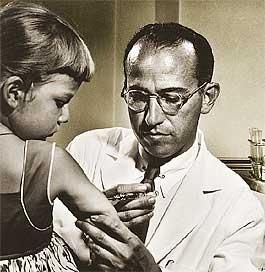
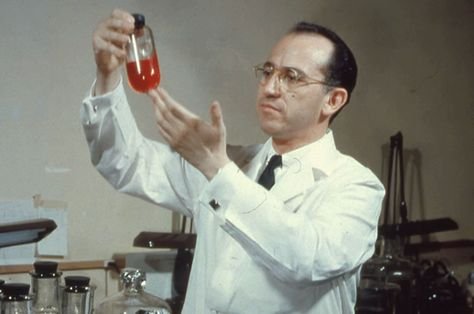
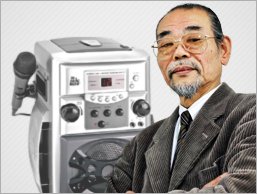
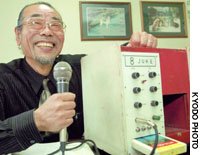
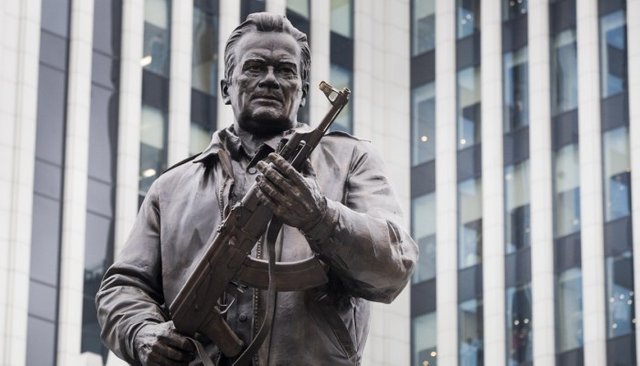

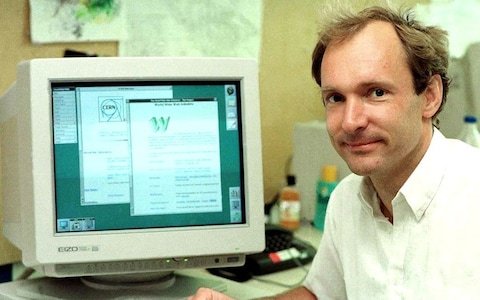
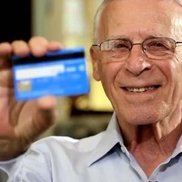
upvote for me please? https://steemit.com/news/@bible.com/6h36cq
No problems then.